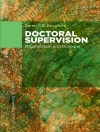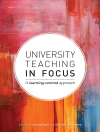Unparalleled in its depth and breadth, this volume analyzes the way the academic profession is increasingly differentiated and professionalized in modern society. Its findings will help educators and laymen around the world to understand between the problems and the changing nature of a profession responsible for training the members of virtually all the other leading professions. The academic profession provides the basic staff for universities and colleges everywhere. Its competence is central to the competence of higher education. Long a subject for satire and fiction, this key profession as receive a relatively little systematic study. What do we know of its nature? What determines its character and strength, its capacity to carry out the many functions of modern postsecondary education? The authors of these far-ranging studies examine the academic profession in three decisive settings: the national, the disciplinary, and the institutional. The four chapters of Part I, written mainly by historians, point to the similarities and differences in the development an current composition of the profession in Great Britain, the Federal Republic of Germany, France, and the United States, In Part II, chapter give highlights the vast differences in the nature of the profession between continental Europe and America. Chapter six examines the differences exacted by the many disciplines that operate as ongoing concerns organized around specialized bodies of knowledge. Chapters seve and eight concentrate on the American scene, examining respectively the differences between professional schools and the letters and science departments of American research universities, and the varying academic worlds now provided by types of institutions that range from research universities to community colleges. Finally, Burton Clark presents the themes of the volume and a synthesis of findings in excellent introductory and concluding chapters.
Unparalleled in its depth and breadth, this volume analyzes the way the academic profession is increasingly differentiated and professionalized in modern society. Its findings will help educators and laymen around the world to understand between the probl
Circa l’autore
Burton R. Clark was Professor Emeritus of Education at the University of California, Los Angeles.












